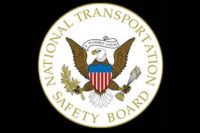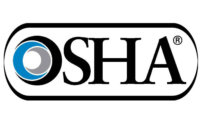Tesla has been ousted from the investigation into the March 23rd 2017 fatal crash of one of its vehicles.
The National Transportation Safety Board (NTSB) announced yesterday that because it violated an agreement, the automaker has been removed as a party to the NTSB’s investigation of the incident involving a Tesla Model X near Mountain View, California.
Why status was revoked
The NTSB says it took the action because Tesla released investigative information before it was vetted and confirmed by the NTSB. “Such releases of incomplete information often lead to speculation and incorrect assumptions about the probable cause of a crash, which does a disservice to the investigative process and the traveling public,” according to the agency.
“It is unfortunate that Tesla, by its actions, did not abide by the party agreement,” said NTSB Chairman Robert Sumwalt. “We decided to revoke Tesla’s party status and informed Mr. Musk in a phone call last evening and via letter today. While we understand the demand for information that parties face during an NTSB investigation, uncoordinated releases of incomplete information do not further transportation safety or serve the public interest.”
Tesla's version
For its part, Tesla told NPR that the company chose to withdraw from the agreement in order to issue a statement to correct what it called “misleading” claims about its Autopilot system being unsafe. Tesla also accused the NTSB of violating its own rules by releasing bits of incomplete information to the media and of being more concerned with press headlines “than actually promoting safety.”
The NTSB has used the party system for decades as part of its investigative process and offers party status to those organizations that can provide technical assistance. The party system allows the sharing of investigative information with all parties that agree to the terms of the party agreement during the early fact-gathering phase of an investigation. This sharing ensures that a party to an investigation has sufficient information to take any immediate actions necessary to ensure safety, such as when the NTSB issued an urgent safety recommendation on March 19 related to the crash of a sightseeing helicopter in New York City, which allowed corrective actions to be carried out immediately.
A long process
NTSB investigations generally take 12 to 24 months to complete. Transparency in the investigative process is achieved through the public release of on-scene information, preliminary reports, and the public docket, as well as through board meetings that are open to the public.
While rare, the NTSB has revoked party status in other investigations. In 2009, the NTSB revoked the party status of the National Air Traffic Controllers Association in the investigation of a midair collision over the Hudson River. In 2014, the party status of both the Independent Pilots Association and UPS were revoked during the investigation of the crash of UPS Flight 1354 in Birmingham, Alabama.
“There is nothing in the party agreement that prevents a company from enacting swift and effective measures to counter a threat to public safety,” said Sumwalt. “We continue to encourage Tesla to take actions on the safety recommendations issued as a result of our investigation of the 2016 Williston, Florida, crash.”
As it is the manufacturer of the vehicle involved in the Mountain View crash, the NTSB expects Tesla’s future cooperation with data requests. Further, Tesla remains a party to the ongoing investigations of the August 25, 2017, crash of a Tesla Model X in Lake Forest, California, and the January 22, 2018, crash of a Tesla Model S near Culver City, California.





